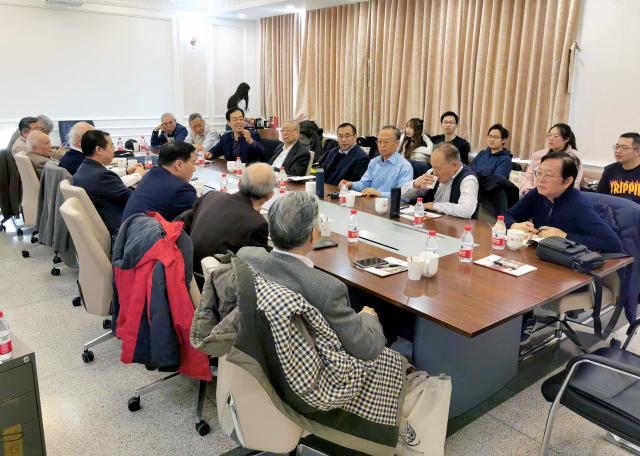The 2020 Symposium on Retrospect and Prospect of the Middle East Issues & Commemoration of the 30th Anniversary of the Establishment of China-Saudi Diplomatic Relations held in Peking University
Date:2021-01-04 Author:
The Symposium on Retrospect and Prospect of the Middle East Issues & Commemoration of the 30th Anniversary of the Establishment of China-Saudi Diplomatic Relations was held at the Foreign Languages Building, Peking University on Dec. 11, 2020.
Presented were Yang Fuchang, former vice minister of the Ministry of Foreign Affairs, and former Chinese Ambassador to Kuwait and Egypt; former China’s Special Envoy to Middle East, former Chinese Ambassador to Bahrain, Jordan and Iran; An Huihou, former Chinese Ambassador to the Algeria, Tunisia, Palestine, Lebanon and Egypt; Hua Liming, former Chinese Ambassador to Iran, UAE and Netherlands; Yao Kuangyi, former Chinese Ambassador to Turkey; Liu Baolai, former Chinese Ambassador to UAE and Jordan; Zhao Xuechang, former Chinese Ambassador to Oman; Liu Zhentang, former Chinese Ambassador to Lebanon and Iran; Wu Sike, former China’s Special Envoy to Middle East, former Chinese Ambassador to Saudi Arabia and Egypt; Yang Honglin, former Chinese Ambassador to Bahrai, Iraq and Saudi Arabia; Xie Xiaoyan, China’s Special Envoy to Syria, former Chinese Ambassador to Iran and Ethiopia; Li Chengwen, Ambassador for China-Arab States Cooperation Forum Affairs of the MFA, former Chinese Ambassador to Sudan and Saudi Arabia; Li Huaxin, former Chinese Ambassador to Iraq, Syria and Saudi Arabia.
The unsettled year 2020 has witnessed events keep cropping up in the Middle East amid a context of a volatile international environment, as the great changes unseen in a century hit the unprecedented COVID-19 pandemic during this period. The symposium was held at the year’s end, a time usually for retrospect and prospect. It was expected to promote the bilateral relationship between China and Saudi Arabia, as this year marks the 30th anniversary of the establishment of diplomatic relationships between these two countries. During the two-hour meeting, ambassadors shared their work experience in the Middle East and views on how the region would go in the future.
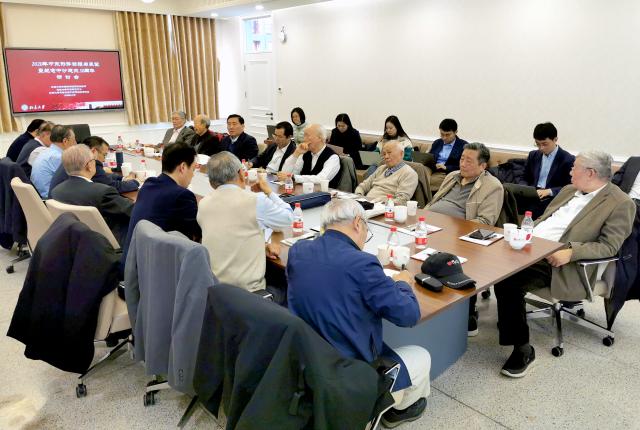
Ambassadors shared their views and experience in the symposium
Ambassador Wu Sike analyzed dilemma and expections of the Gulf countries, especially Saudi Arabia and the UAE, in the entanglement of great powers. These two countries will be able to play a stronger role when international powers in this region match in strength. A better-developed China will bring more opportunities to the international community and the Middle East countries. China and the Gulf countries should strengthen cooperations in both traditional and non-traditional security sectors, including energy resource and new science and technology, and promote exchanges and dialogues between think-tanks of both sides.
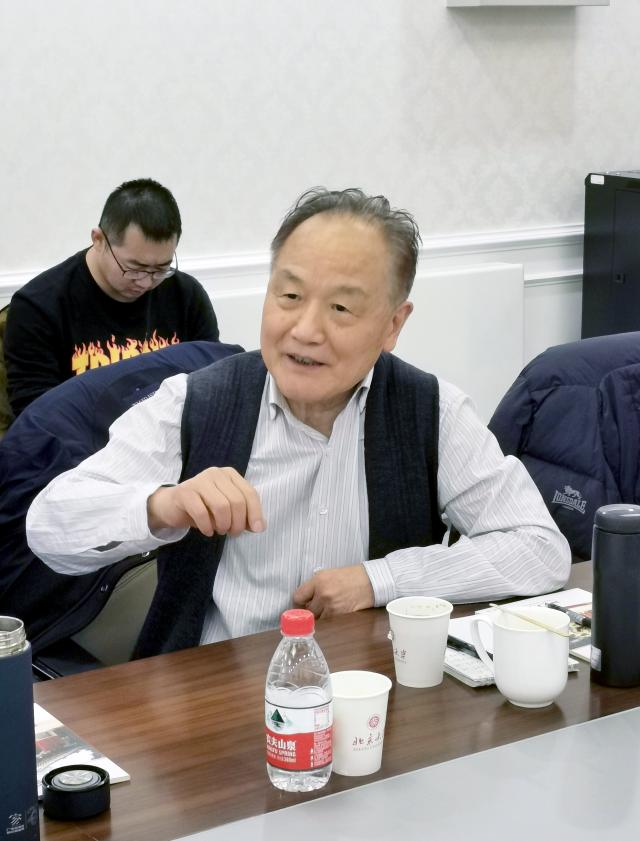
Ambassador Yang Honglin, who participated in the China-Saudi negotiations on the establishment of diplomatic relations, introduced the background and details of the negotiations. There are three reasons behind the rapid development of China-Saudi relations over the past 30 years, as Yang noted. Firstly, leaders of both countries prioritized their friendship and paid reciprocal visits frequently. President Xi Jinping visited Saudi Arabia twice, and King Abdullah chose Asia as the destination of his first foreign journey since assuming office, with China as the first stop of this trip. Secondly, both sides enjoyed close bilateral trades in oil industry. Being the oil producer boasting the largest storage in the world, Saudi Arabia has seen cooperations of this field advanced by leaps and bounds. Thirdly, people-to-people exchanges is forging ahead. There are more than 1000 Saudi Arabia students in China, and the King Abdul Aziz Public Library PKU Branch has emerged as an important platform for cultural education and exchanges for China and Saudi Arabia. Ambassador Yang suggested that PKU should give full play to its advantages in strengthening cultural exchanges and expanded the cooperations between these two countries to wider fields.
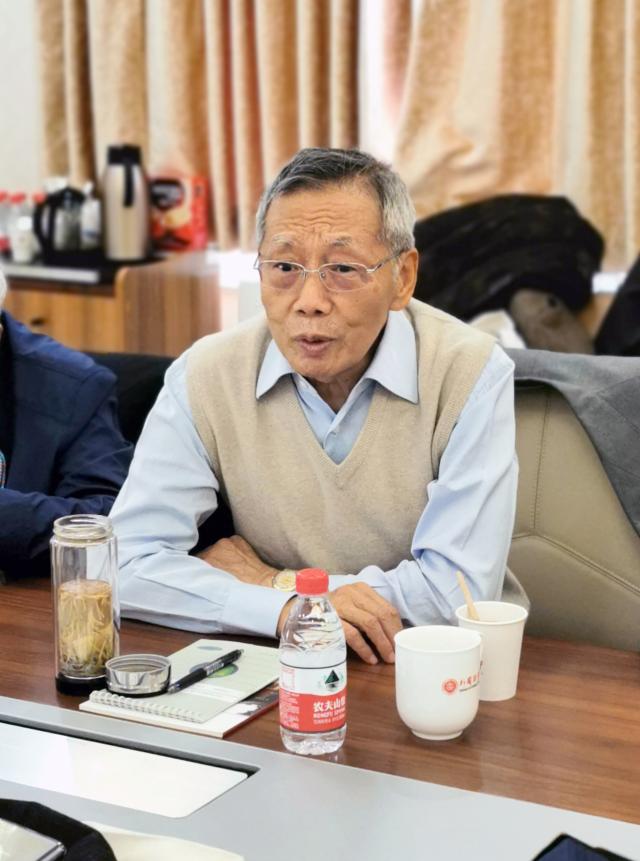
Ambassador Li Chengwen pointed out that stepping up cooperations in energy resource and other fields, consolidating and developing comprehensive strategic partnership were in the long-term interests of both China and Saudi Arabia. Thus, both countries should continue to collaborate their development strategies to build a Sino-Saudi community with a shared future. As Saudi Arabia had depicted the vision of 2030, we Chinese scholars should gain deeper understanding of Saudi’s development strategy and found cooperation fields with great potentials. Both countries should advance the cooperations between institutions and think-tanks, and strengthen the connections between Chinese enterprises and their influential Saudi counterparts, such as Saudi Aramco. Communication mechanism between academic community and government should be established so as to provide more opportunities for scholars to visit countries as the object of their studies. Incentive mechanisms on the publicity of international researches of Chinese scholars must be reformed as a way to enhance the influence of Chinese academic community in the world’s public opinion field.
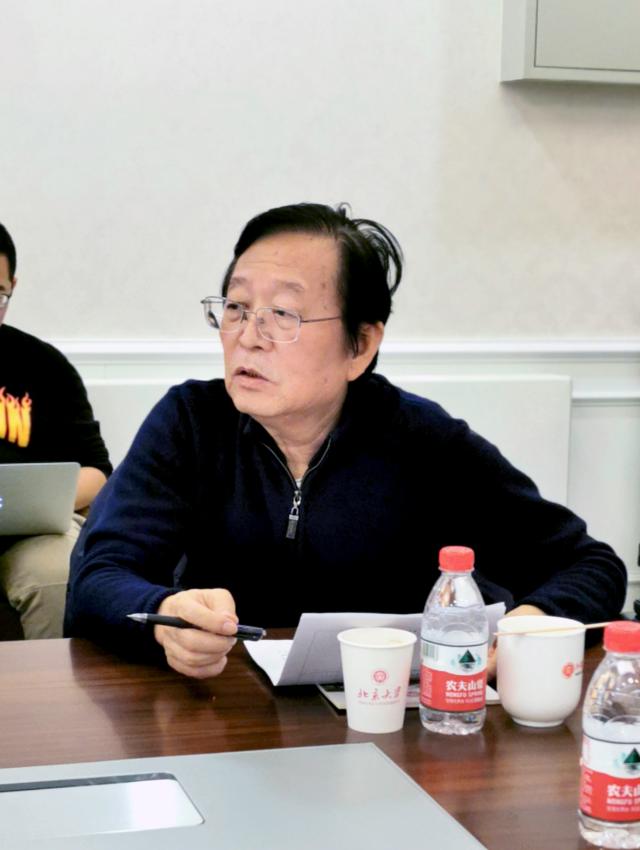
Ambassador Li Huaxin, who worked in Saudi Arabia twice as permenant diplomat, has witnessed development this country achieved over the past 20 years. Saudi Arabia is of great importance from both global and regional perspective, as Ambassador Li introduced, for it represents the only Arabic country in G20 and the 2nd largest and the 6th most-populated country in the Arabic world. The great achievements in Sino-Saudi relationship over the past 30 years were built on close exchanges and cooperations in politics, economy and culture. Saudi King was the first foreign head of state to voice support for China when it was in the depth of fighting against COVID-19 pandemic. Being China’s biggest partner in Middle East and the whole Africa, Saudi Arabia and China will share a broader and brighter future in bilateral cooperation.
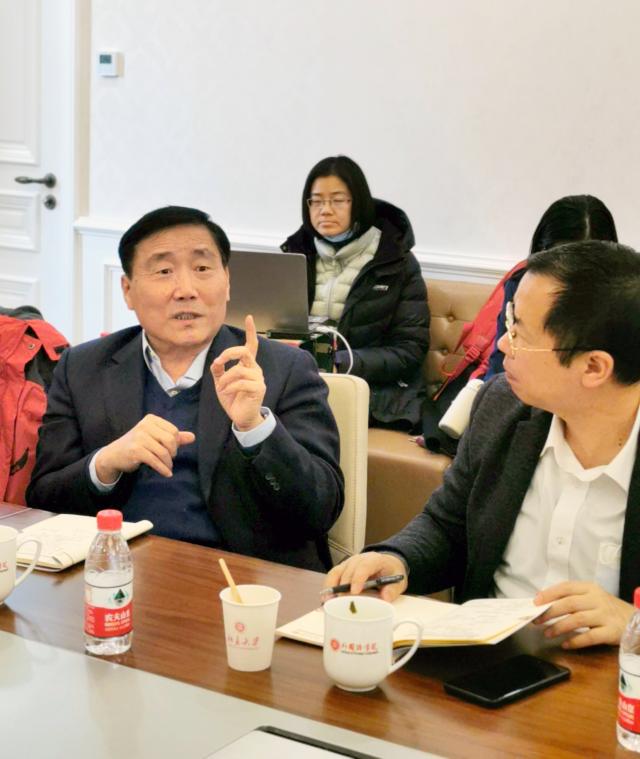
Ambassador Xie Xiaoyan said that the situation in Syria now is at a deadlock. Less attention has been paid over the past year by the international community as the COVID-10 pandemic continues to swept the whold world. No major step was taken by the US and Russia, two extraterritorial powers, and Iran, Turkey, Isreal and Saudi, influential countries within the region. No concrete progress was achieved in post-war reconstruction.
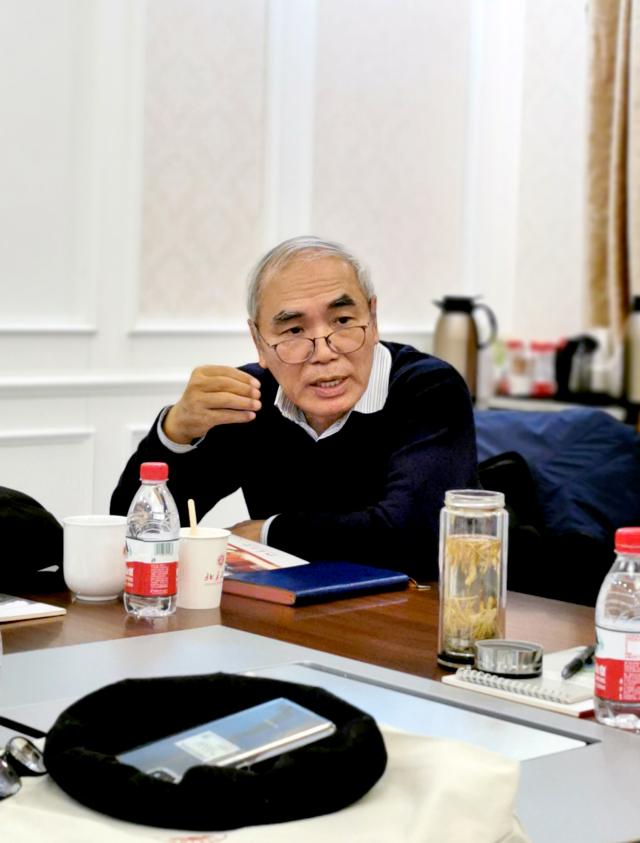
Ambassador Hua Liming stressed that the international reality was featured by “a rising East and downing West”. China now enjoys economic boom, and gains huge progress in industrial chain expansion from the development of science and technology. This brings changes in the balance of power, generating worries in international community. The Middle East countries, however, are consistently adopt a prudent and impartial attitude toward China. Over the past 4 years, the Trump administration has borne a grudge for China’s development in Middle East and forced the Arabic countries to come down one side of China-US rivalry, which brings many diplomatic difficulties to China. What changes Biden will make in this region remains unclear. However, China has shared long-standing friendship with Middle East countries despite the interference from America. What China hopes to see is a peaceful Middle East as a stable oil supplier.
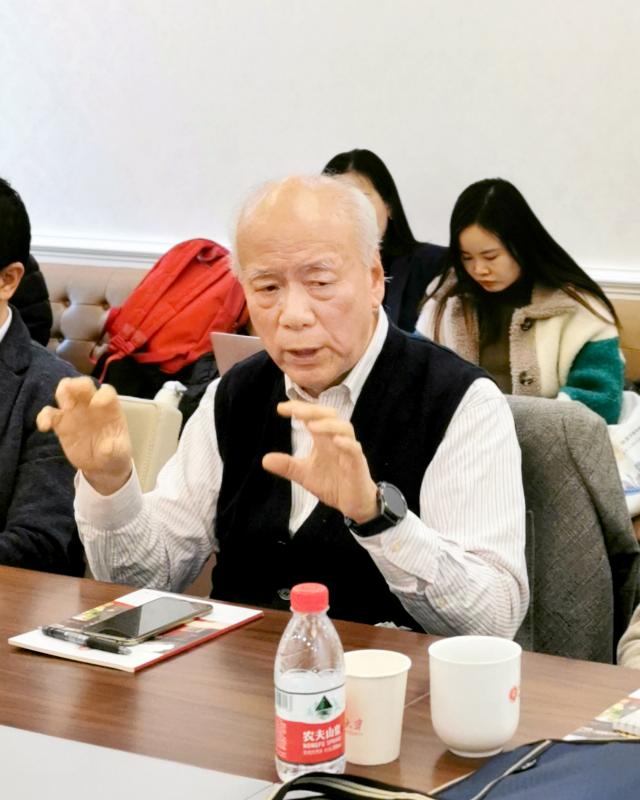
Ambassador Liu Zhentang held that the Palestinian issue will remain at the core of the Middle East turbulence. A fast-growing population in Palestinine made American’s intension to marginalize this issue in vain. Besides, the influence from China should never be ignored. It’s most likely that the conflicts and clashes in Middle East will continue in the future, as Liu argued, which comes from the geo-strategic significance of this region for it lies in where the East and West civilization meets, as well as the long-standing discordance of religion and politics.
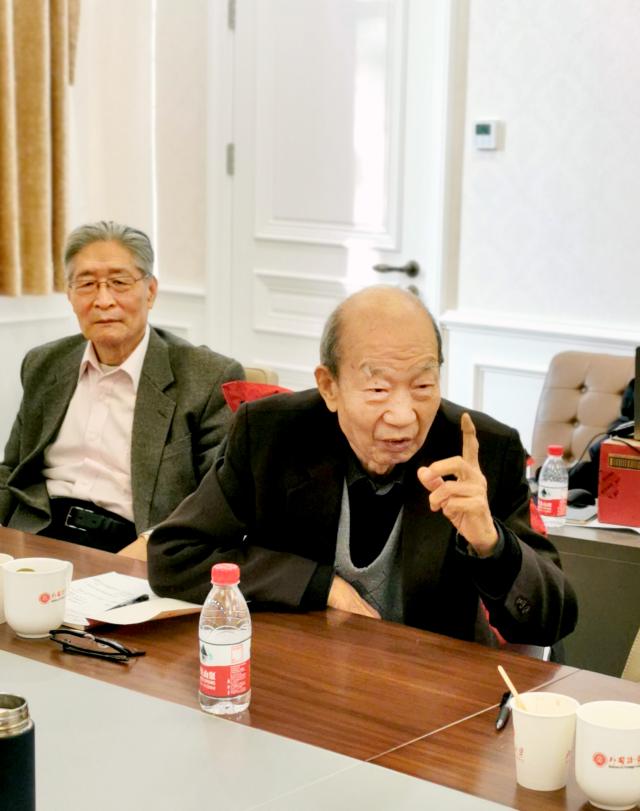
Ambassador Yang Fuchang believed that the similar concepts and philosophy of China and Arab countries provide an enabling climate for the development of bilateral relations, as both sides return kindness with gratitude. Now the academies and diplomatic communities are divided in where the Middle East will go in the future. Yang held that beneath the seemingly calm surface there goes the undercurrents. The growing opposition made governance more difficult than that in the time of upheavals, and the global recession caused by COVID-19 pandemic made the economic revamp an urgency. Besides, conflicts between the Gulf countries is yet to be solved. China will not get involved in these issues, nor will it interfere domestic affairs of these countries.
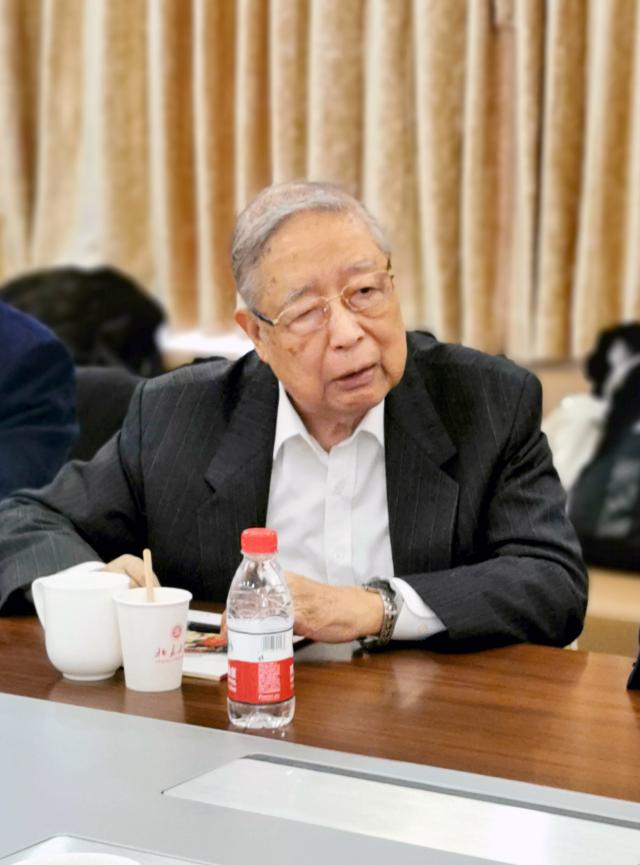
Ambassador Liu Baolai shared his views on retrospect and prospect of Sino-Saudi relations, the situation of Middle East in 2020 and how it will develop in 2021. There are huge potentials in the development of relations between China and Saudi Arabia, therefore, both sides should make more efforts in promoting exchanges and communications between non-governmental institutions. The Middle East has been trapped in a dilemma where turmoils and changes interwoves in the year passing, and the raging epidemic continues to destroy the economic development. The economy of Middle East will be declined by 5.7%, among which the GCC countries will suffered from a shrink of 7.1%, and those war-torn economies will be contracted by 13% at maximum, as estimated by IMF. Besides, relations between Isreal and Arab countries, including the UAE, Saudi and Sudan, were normalized. This, together with aggravating competitions between regional powers, is altering the balance of the Middle East.
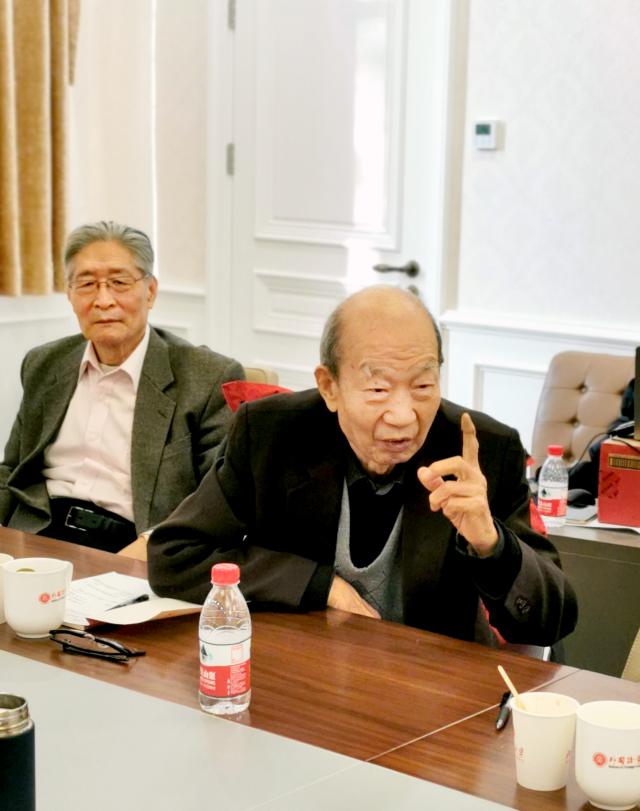
Ambassador Yao Kuangyi shared his observations on Turkey’s policies of domestic affairs and diplomacy. Yao held that the globalization increased the income inequality, which further results in the prevalence of populism. This has been proved to be true in the US, so as in the Turkey. Therefore, people in Turkey give full support to the philosophy and policies their government adopt to make Turkey strong. Turkey and Iran are both important Islamic countries that bridge the Eest and Wast geographically. We must unite the Islamic world with ourselves by clarifying our policies and connotations of development with Chinese characteristics, and spread Chinese stories widely in ways and languages that are comprehensible to them.
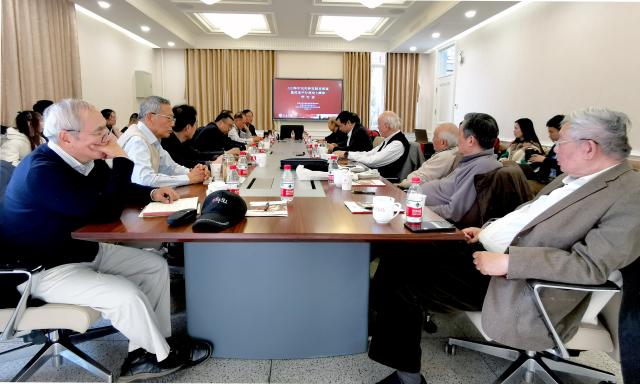
The symposium, presided by Professor Fu Zhiming, vice dean of School of Foreign Languages, PKU, was hosted by Department of Arabic Language and Culture, SFL-PKU, State of Qatar Chair in Middle Eastern Studies at PKU and Middle East Studies Center, PKU. Professor Lin Fengmin, director of Arabic Department, Wu Bingbing, deputy director of PKU Department of Arabic and chair professor of Qatar Chair at PKU, and faculties and students from PKU Department of Arabic attended the event.
